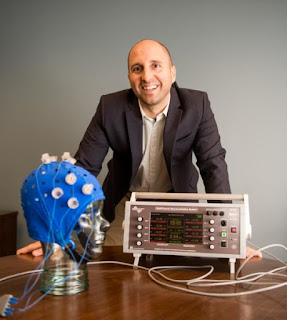In a recent study, researchers at
psychological and brain sciences at Boston University and demonstrated that
electro-stimulation can improve the working memory of people in their 70s so
that their performance on memory tasks is indistinguishable from that of
20-year-olds. But they also discovered something incredible: by using
electrical currents to non-invasively stimulate brain areas that have lost their
rhythm, we can drastically improve working memory performance. During the
study, which was supported by a National Institutes of Health grant, they asked
a group of people in their 20s and a group in their 60s and 70s to perform a
series of memory tasks that required them to view an image, and then, after a
brief pause, to identify whether a second image was slightly different from the
original.
At baseline, the young adults
were much more accurate at this, significantly outperforming the older group.
However, when the older adults received 25 minutes of mild stimulation
delivered through scalp electrodes and personalized to their individual brain
circuits, the difference between the two groups vanished. That memory boost
lasted at least to the end of the 50-minute time window after stimulation, the
point at which the experiment ended. Researcher's work suggests that by using
electrical stimulation, we can reestablish these pathways that tend to go awry
as we age, improving our ability to recall our experiences by restoring the
flow of information within the brain. And it's not just older adults that stand
to benefit from this technique: it shows promise for younger people as well.
More information:
